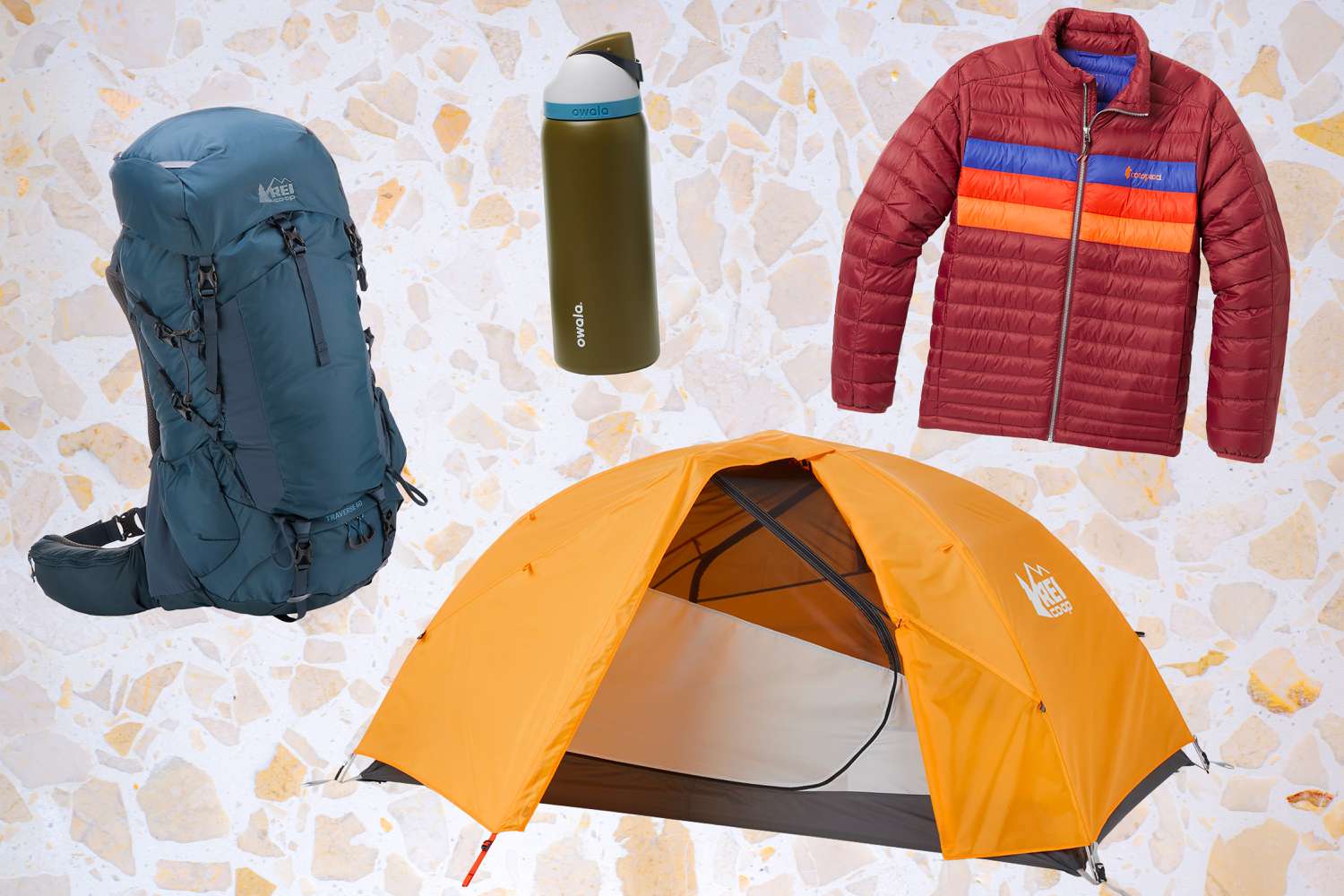How Much is a Hiking Tent? Hiking tents can range from prices as low as $19.99 to as high as $578.00. When it comes to buying a hiking tent, it’s essential to consider various factors such as cost, capacity, and features.
Hiking tents are specifically designed for portability, durability, and weather resistance, making them suitable for solo or small-group adventures. The prices of hiking tents widely vary, with options ranging from as low as $19. 99 for a basic two-person tent to as high as $578.
00 for a more advanced four-person, four-season tent. Understanding the differences between camping and hiking tents and the importance of weight and waterproof features is crucial in selecting the right hiking tent for outdoor excursions. Before making a purchase, assessing your specific needs and budget is essential to find the perfect hiking tent for your adventures.

Credit: www.amazon.com
Understanding Hiking Tents
Hiking tents are essential for outdoor enthusiasts who enjoy backpacking and camping in remote locations. These tents are designed to be lightweight, durable, and easily portable, making them ideal for long treks and challenging terrain. Understanding the different types of hiking tents and their key features is crucial for selecting the right tent for outdoor adventures.
Types Of Hiking Tents
When it comes to hiking tents, there are several types to consider based on your specific needs:
- Ultralight Tents: These tents are incredibly lightweight and designed for minimalists or solo hikers seeking to reduce their pack weight.
- 3-Season Tents: Versatile tents suitable for spring, summer, and fall, offering a balance of ventilation and weather resistance.
- 4-Season Tents: Sturdier and weatherproof, these tents are designed to withstand harsh winter conditions and heavy snow loads, making them ideal for extreme cold weather.
- Backpacking Tents: Compact and easy to carry, these tents are specifically designed for backpackers who need a lightweight and durable shelter for their trips.
Key Features To Consider
When choosing a hiking tent, it’s essential to consider the following key features to ensure it meets your specific requirements:
- Weight: Opt for a lightweight tent without compromising durability and weather protection, especially for long hikes.
- Weather Resistance: Look for tents with waterproof materials, sealed seams, and sturdy construction to withstand rain, wind, and snow.
- Ventilation: Adequate airflow is crucial to prevent condensation inside the tent, particularly during warmer seasons.
- Setup: Easy and quick setup is essential for hikers, so consider tents with simple and intuitive pitching designs.
- Durability: Long-lasting materials and sturdy construction are vital for withstanding the rigors of outdoor use.

Credit: www.outsideonline.com
How Much is a Hiking Tent?
When it comes to investing in a hiking tent, one of the first considerations is often the cost. Hiking tents come in a wide range of prices depending on the brand, size, and features. Understanding the different price ranges and what they offer can help you choose the best hiking tent for your needs.
Budget Options
Many budget-friendly options are available if you’re looking for an affordable hiking tent. These tents typically range from $19.99 to around $89.99. While they may not have all the features of higher-end tents, budget options can still provide durability and protection from the elements.
Mid-range Options
Mid-range hiking tents offer a balance of quality and affordability, typically ranging from $89.99 to $159.99. These tents often include more advanced features such as improved ventilation, lightweight materials, and additional space without breaking the bank.
High-end Options
For those willing to invest in top-of-the-line hiking tents, high-end options can cost anywhere from $159.99 to $700 and above. These tents are designed with the most advanced materials, innovative construction, and state-of-the-art features, providing unparalleled durability, weather resistance, and comfort for serious hiking enthusiasts.
Difference Between Camping Tents And Hiking Tents
When it comes to outdoor adventures, having the right tent is essential. However, it’s important to understand the difference between camping and hiking tents to ensure you choose the right one for your needs. While both types of tents provide shelter, they have distinct features that cater to different activities and environments.
Design And Size
Camping tents are designed for larger groups, offering spaciousness and comfort. They typically have a dome or cabin shape, providing ample headroom and room for multiple people to sleep comfortably. Camping tents often feature separate rooms or compartments, allowing for privacy and organization.
On the other hand, hiking tents are designed with portability in mind. They are compact and lightweight, making them easy to carry during long hikes. Hiking tents usually have a tapered shape, minimizing weight while providing enough space for one or two people to sleep. These tents often utilize a single-pole or trekking pole setup to save on weight and pack size.
Portability And Weight
When it comes to portability and weight, camping tents are less suitable for backpacking or hiking trips. Due to their larger size and heavier materials, they can be bulky and cumbersome to transport. These tents are more suitable for car camping or short walks from the parking lot to the campsite.
Hiking tents, on the other hand, prioritize portability and weight. They are made from lightweight materials, such as nylon or polyester, and often incorporate aluminum or fiberglass poles to reduce weight further. This makes them easy to carry in a backpack and ideal for long-distance hikes or backpacking trips where every ounce counts.
In conclusion, the main difference between camping and hiking tents is their design, size, and portability. Camping tents are spacious and comfortable, suitable for larger groups and car camping. On the other hand, hiking tents are compact, lightweight, and portable, making them ideal for solo or duo backpacking adventures.
What To Look For In A Hiking Tent?
When searching for a hiking tent, it’s important to consider factors such as durability, weather resistance, & portability. Prices for hiking tents can range from $19. 99 to $578. 00, depending on the brand and features.
Durability And Weather Resistance
A hiking tent must be durable and withstand various weather conditions. Look for tents made from high-quality materials such as ripstop nylon or polyester. These materials are designed to be tear-resistant and can handle rough terrain and harsh weather.
Additionally, check for tents that have a waterproof rating. This rating is measured in millimeters & indicates how water-resistant the tent fabric is. A higher rating means the tent will be able to withstand heavy rain without leaking.
Another important feature to consider is the tent’s ability to handle wind. Look for tents with sturdy poles and reinforced seams to ensure they can withstand strong gusts.
Ease Of Setup
When you’re out in the wilderness, the last thing you want is a complicated tent setup process. Look for tents that are easy to set up and take down. Freestanding tents are an excellent option, as they can be set up without the need for stakes, making them quick and convenient to use.
Some tents also come with color-coded clips or poles, making it even easier to put them together.
Weight And Packability
In selecting the right product, weight, and packability are essential factors. Hiking tent. You want a lightweight and compact tent when you’re backpacking or hiking long distances.
Look for tents that use lightweight materials and have a small pack size. This will make it easy for you to carry. Tent in your backpack without adding unnecessary weight.
Additionally, consider the tent’s storage bag. A compression stuff sack can help reduce the size of the packed tent, making it easier to fit into your backpack.
| Durability and Weather Resistance | Ease of Setup | Weight and Packability |
|---|---|---|
| High-quality materials | Freestanding design | Lightweight materials |
| Waterproof rating | Color-coded clips or poles | Compact pack size |
| Wind-resistant features | Simple and intuitive setup | Compression stuff sack |
- Choose a tent that is made with high-quality and tear-resistant materials to ensure durability.
- Look for a tent with a high waterproof rating to keep you dry during heavy rain.
- Consider the tent’s ability to handle wind by checking for sturdy poles and reinforced seams.
- Opt for a tent that is easy to set up and take down, preferably a freestanding design.
- Color-coded clips or poles can make the setup process even easier.
- Select a lightweight tent with a compact pack size to make it easier to carry during hikes.
- A compression stuff sack can help reduce the size of the packed tent for better packability.
When looking for a hiking tent, remember these factors to ensure you choose a tent that will meet your needs in terms of durability, ease of setup, and weight.
Are Hiking Tents Waterproof?
Hiking tents vary in cost, with options ranging from budget-friendly to high-end models. Prices start at around $20 for basic two-person tents, while advanced four-season or ultralight models can cost $500 or more. The specific features need to be taken into account. Durability is needed for hiking trips when determining how much to invest in a hiking tent.
# Are Hiking Tents Waterproof?
## Understanding Waterproofing
When it comes to hiking tents, one of the most important considerations is their waterproofing capabilities. Understanding how waterproofing works will help you choose the right tent for your outdoor adventures. Waterproofing refers to the ability of a tent to prevent water from entering its interior; It keeps you dry and comfortable in the wet.
To achieve this, hiking tents are typically made from waterproof materials such as coated nylon or polyester. These materials are designed to repel water, ensuring no moisture seeps through the fabric and into the tent. Additionally, hiking tents often feature sealed seams and waterproof zippers to provide extra protection against leaks.
## Waterproof vs Water-Resistant Tents
When browsing for hiking tents, you may come across terms like waterproof and water-resistant. Understanding these two terms’ differences is important to make an informed decision.
Waterproof tents are specifically designed to keep water out, even during heavy rain or snow. These tents have a higher level of water resistance and are generally more reliable in wet conditions. They are great for backpacking and camping in areas with unpredictable weather.
On the other hand, water-resistant tents are designed to resist water to some extent but may not provide complete protection during heavy rainfall. While water-resistant tents can withstand light showers, they are not recommended for prolonged exposure to heavy rain or intense storms. These tents are viable for backpacking trips in dry climates or during mild weather conditions.
In conclusion, waterproofing is a crucial factor to consider when it comes to hiking tents. Understanding the concept of waterproofing and the difference between waterproof and water-resistant tents will help you choose a tent that fits your special needs. And provides adequate protection in various weather conditions. So, before embarking on your next hiking adventure, make sure to invest in a high-quality waterproof hiking tent that will keep you dry and comfortable throughout your journey.

Credit: www.nytimes.com
Frequently Asked Questions On How Much Is Hiking Tent
How Much Does A Hiking Tent Cost?
Hiking tent prices vary, with options ranging from $20 to $700, depending on size, brand, and features.
What’s The Difference Between Camping Tent And Hiking Tent?
Camping tents are spacious and comfortable for larger groups while hiking tents prioritize portability and weather resistance for solo or small-group adventures. Hiking tents are not completely waterproof but are water-resistant.
What Is A Good Weight For A Hiking Tent?
A good weight for a hiking tent should be lightweight, typically around 2 to 5 pounds. Lightweight tents are easier to carry on long hikes and provide a comfortable shelter without adding too much weight to your backpack.
Are Hiking Tents Waterproof?
Hiking tents are water-resistant, not completely waterproof. They can delay water penetration but not prevent it.
Conclusion
Choosing the right hiking tent is essential for a successful outdoor adventure. From budget-friendly options to high-end models, Various factors should be taken into account, e.g. size, weight, and weather resistance. While camping tents offer spaciousness and comfort, backpacking tents prioritize portability and durability.
Finding a tent that fits your needs and budget is crucial. Furthermore, it’s important to note that while some tents are water-resistant, very few are completely waterproof. Consider these factors when making your decision, and enjoy your hiking experience with the perfect tent.

